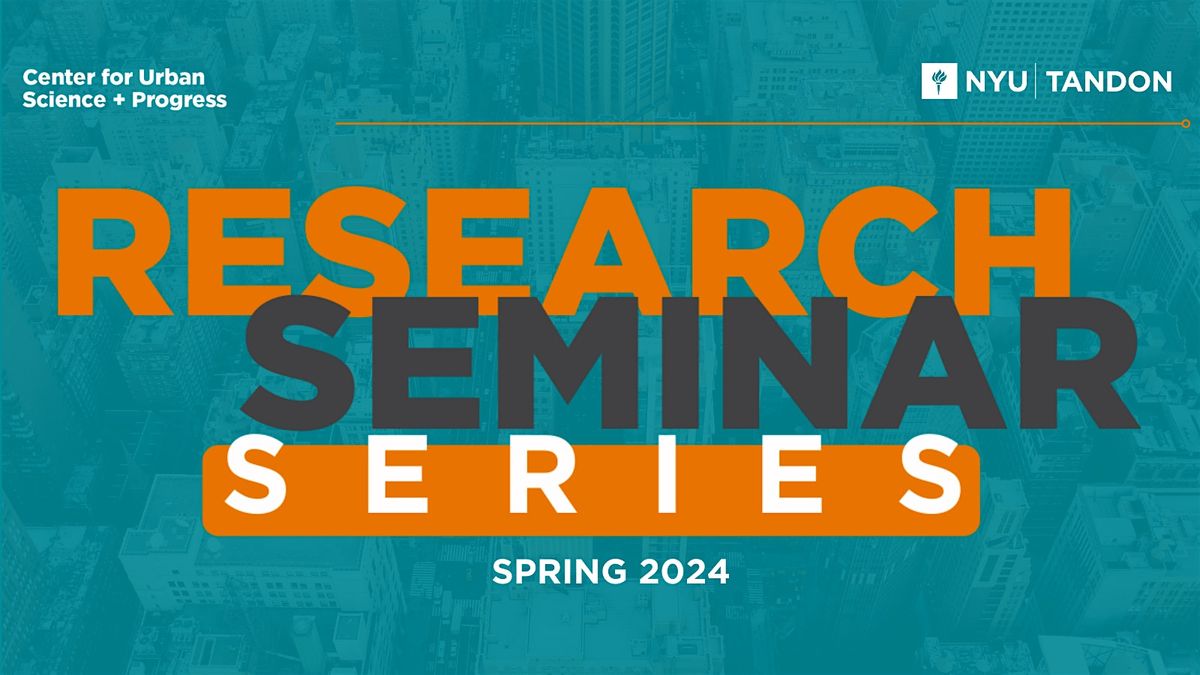
About this Event
NYU CUSP is pleased to host our annual Research Seminar Series, featuring leading voices in the growing field of urban informatics. The seminars will examine real-world challenges facing cities and urban environments around the world, with topics ranging from citizen and social sciences to smart infrastructure.
Next-Generation Emergency Response Network Design through Drone-Bystander-Ambulance Coordination
Drones have demonstrated potential to improve response to time-sensitive emergencies, particularly in cities where ambulance response is impacted highly by traffic. We focus on out-of-hospital cardiac arrests (OHCAs), which K*ll over 300,000 individuals in the US annually. Drones can facilitate early medical intervention by delivering an automated external defibrillator (AED) before ambulance arrival, but they require community response in the form of willing bystanders to apply the AED. Past work on designing drone-enabled AED networks assumes that community response is always forthcoming, although historical bystander participation is in fact low. We introduce the concept of explicitly capturing community response through joint location-queuing models and propose a modeling framework to simultaneously optimize a drone-bystander-ambulance network for OHCA response. Service can be achieved by either an ambulance alone; or by the drone-delivered AED together with a bystander, complemented by a slower-arriving ambulance. We formulate this problem as a mixed-integer-linear program and use the solution structure to develop an accurate and highly scalable heuristic algorithm. We demonstrate our approach on a case study with three cities around Toronto, Canada. Operationally, the drone-bystander-ambulance network is more effective in regions with limited ambulance resources or low ambulance availability.
About the Speaker
Lavanya Marla is an Associate Professor in Industrial and Enterprise Systems Engineering at the University of Illinois at Urbana-Champaign. Her research interests are in building scalable techniques for robust and dynamic decision-making techniques in large-scale networked systems; seamlessly integrating tools from data-driven optimization, statistics, simulation and machine learning. Her work has been recognized through multiple awards including the prestigious Center for Advanced Study award from the University of Illinois, IISE Outstanding Innovation in Service Systems award, a semi-finalist at the INFORMS Innovative Applications in Analytics Award, Honorable mention for the Anna Valicek award from AGIFORS, KDD Startup Research award, and multiple best paper awards. Her research is funded by NSF, DHS, DoT, the US-India Educational Foundation, and industry. She was earlier a Systems Scientist with the Heinz College at Carnegie Mellon University; and earned her PhD in Transportation Systems from MIT and Bachelors degree from IIT Madras.
How to Attend
NYU CUSP Research Seminars are only open to faculty, students, and staff at NYU – they are not open to the public at this time. This event will be held in-person.
Event Venue & Nearby Stays
Room 1201, 12th Floor, 370 Jay Street, Brooklyn, United States
USD 0.00
